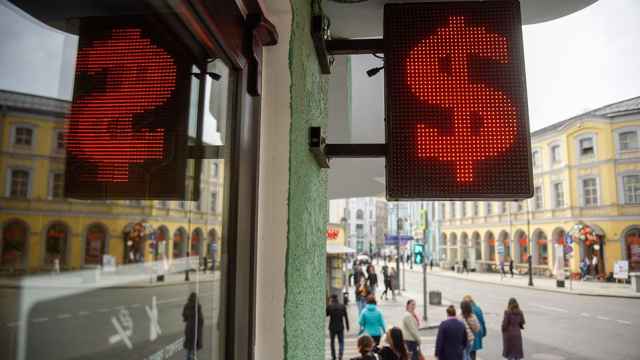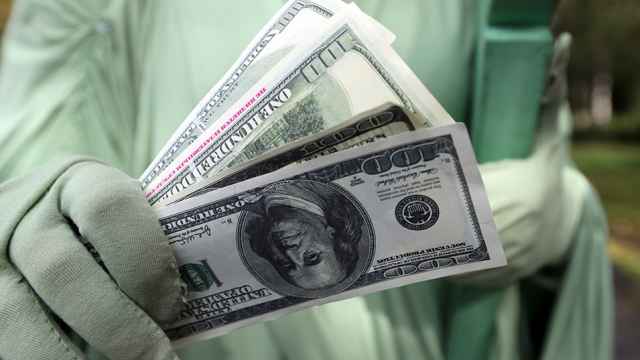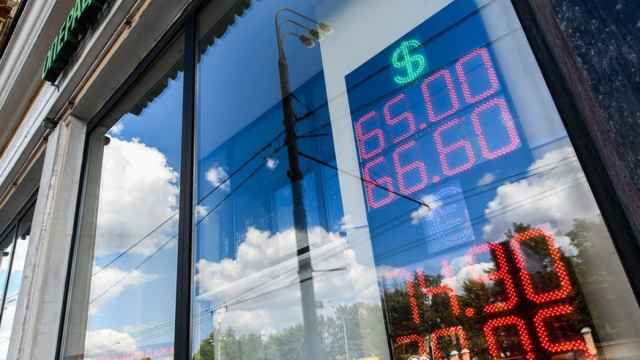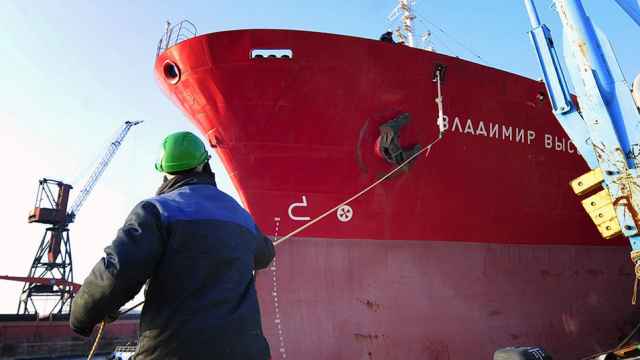Russia’s sovereign wealth fund will ditch its holdings in dollars, dramatically increase its holdings of Chinese yuan and invest in gold for the first ever time, Russia’s Finance Ministry said Thursday.
Finance Minister Anton Siluanov told the St. Petersburg International Economic Forum (SPIEF) that Russia’s $186-billion national welfare fund (NWF) would completely divest its $41 billion worth of holdings in dollars within a month.
“Today we have about 35% of NWF investments in dollars,” Siluanov said. “We’ve decided to get out of dollar assets completely, replacing investments in dollars with an increase in euros and gold.”
The share of euros in the fund will be increased to 40%, the Chinese yuan will account for 30% and another 20% will be stored in gold.
The move will affect the liquid part of the NWF, which currently stands at around $120 billion. Despite the vast sums involved, the shift is unlikely to affect markets, since the NWF represents just a slice of Russia’s overall $600 billion worth of international reserves. The transaction will not involve the actual sale of dollars, as it will be carried out through internal transfers and an accounting shift within the Central Bank, Bloomberg reported.
First Deputy Prime Minister Andrey Belousov, one of the country’s most influential economic policymakers, said Thursday the decision would not affect the ruble’s exchange rate. The Russian currency was flat against the U.S. dollar at 73.2 on Tuesday afternoon in Moscow trading.
Russia’s Central Bank has also been reducing the share of U.S. dollars within its overall reserves over recent years, a policy which is set to continue, Kremlin spokesperson Dmitry Peskov said, as Russia seeks to reduce its dependence on the greenback under the specter of possible new sanctions.
Renaissance Capital’s Sofya Donets said the move was largely technical, and dubbed the decision “a political declaration, rather than a necessary step.”
“Although sanction risks are present, I assume that risks for the Central Bank’s reserves kept in U.S. dollars are basically non-existent,” she told The Moscow Times.
The U.S. levelling sanctions against Russia’s Central Bank would “be in conlift with the current international monetary settings — like a third world war.”
The NWF is where Russia stores excess profits on oil sold abroad. It is designed to help stabilize the highly volatile ruble from swings in global oil prices and serve as a store of potential cash which can be unleashed to fund infrastructure investments across the country.
How exactly the fund should be used has been the focus of intense debate in Russia over recent years. At the start of the coronavirus pandemic, economists called for Russia to unlock the fund to roll out a more far-reaching stimulus program — though this was resisted by Siluanov, who said using the sovereign welfare fund for government transfers would undermine Russia’s macroeconomic stability.
The government is yet to decide on a course, with the most likely options being tapping into a small portion of the fund to support Russia’s ambitious $360-billion National Projects package or providing development loans to countries that buy Russia’s exports, analysts at Renaissance Capital said. They estimated that spending 0.5% of the NWF would boost Russia’s annual GDP by 0.3%.
A Message from The Moscow Times:
Dear readers,
We are facing unprecedented challenges. Russia's Prosecutor General's Office has designated The Moscow Times as an "undesirable" organization, criminalizing our work and putting our staff at risk of prosecution. This follows our earlier unjust labeling as a "foreign agent."
These actions are direct attempts to silence independent journalism in Russia. The authorities claim our work "discredits the decisions of the Russian leadership." We see things differently: we strive to provide accurate, unbiased reporting on Russia.
We, the journalists of The Moscow Times, refuse to be silenced. But to continue our work, we need your help.
Your support, no matter how small, makes a world of difference. If you can, please support us monthly starting from just $2. It's quick to set up, and every contribution makes a significant impact.
By supporting The Moscow Times, you're defending open, independent journalism in the face of repression. Thank you for standing with us.
Remind me later.






